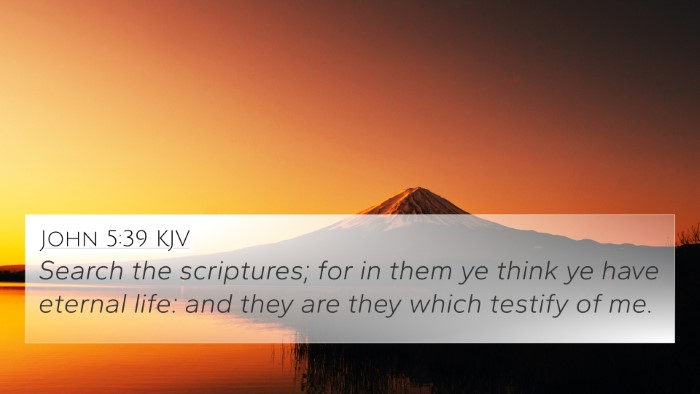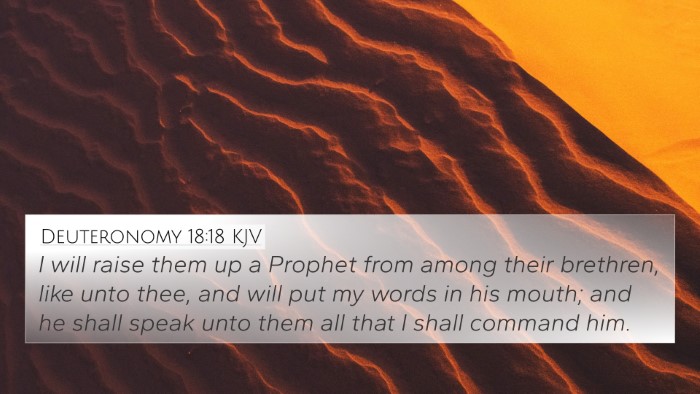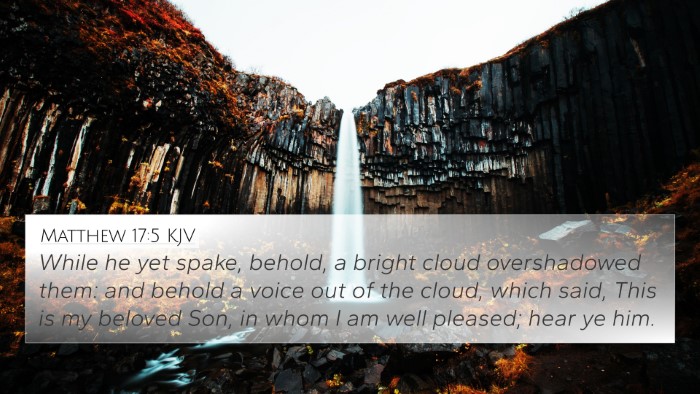Understanding John 6:29
John 6:29 states, "Jesus answered and said to them, 'This is the work of God, that you believe in Him whom He sent.'
This verse encapsulates a fundamental teaching of Christianity: the essential act of faith in Jesus Christ as the work God requires from His followers. The emphasis is placed on belief as the key response to God’s revelation through Jesus. Below is a detailed exploration of this verse, utilizing insights from various public domain commentaries.
Commentary Insights
- Matthew Henry: Henry emphasizes that true faith is characterized as the work that God expects. Here, belief is not merely an intellectual agreement but a deeper conviction that shapes one's actions and life. The idea of God requiring belief highlights the relational aspect of faith, indicating that God desires a personal connection with His creation.
- Albert Barnes: Barnes explains that the work of God is to believe in His Son, implying that this belief is a divine activity in itself. He points out that this belief leads to eternal life, thereby underscoring the critical nature of faith in the context of salvation. Barnes also notes the simplicity of the gospel message, contrasting it with the more complex religious requirements of the time.
- Adam Clarke: Clarke delves into the Greek meanings and usages in the verse, explaining the verb translated as ‘to believe’ implies trust and reliance. He encourages readers by indicating this work is accessible to all, requiring only that one has faith in Christ.
Biblical Connections
John 6:29 serves as a pivotal link to several other verses throughout the Bible, reflecting the theme of faith and belief. Here are some significant cross-references:
- John 3:16 - "For God so loved the world that He gave His only begotten Son, that whoever believes in Him shall not perish, but have eternal life." This verse showcases the result of faith, which is eternal life.
- Acts 16:31 - "Believe in the Lord Jesus, and you will be saved, you and your household." This reinforces the necessity of belief for salvation.
- Romans 10:9 - "If you confess with your mouth Jesus as Lord, and believe in your heart that God raised Him from the dead, you will be saved." This indicates the belief needed is active and confessional.
- Hebrews 11:1 - "Now faith is the substance of things hoped for, the evidence of things not seen." This defines faith and illustrates its foundational role in the life of a believer.
- Ephesians 2:8-9 - "For by grace you have been saved through faith, and that not of yourselves; it is the gift of God, not of works, lest anyone should boast." This verse illustrates the relationship between grace, faith, and works.
- 1 John 5:13 - "These things I have written to you who believe in the name of the Son of God, that you may know that you have eternal life." Here, assurance of salvation is linked to belief in Jesus.
- Mark 16:16 - "He who believes and is baptized will be saved; but he who does not believe will be condemned." This presents the consequences of faith and unbelief.
Thematic Connections
This verse demonstrates key themes prevalent throughout both the Old and New Testaments, establishing a rich tapestry of biblical doctrine. Here are some thematic connections:
- The theme of faith: Found in numerous scriptures, God has always sought a relationship built on trust, as seen throughout the life of Abraham and the call to Israel to trust in God’s promises.
- The call to action: The verse indicates that belief is an active decision, urging individuals not just to acknowledge Jesus but to faithfully follow Him.
- Eternal life: The promise of eternal life is a core message in scripture, echoed in various passages that affirm the necessity of faith for salvation.
Conclusion
Ultimately, John 6:29 distills a profound truth about the expectation of God from humanity—that we turn to Him in faith. This message resonates throughout scripture, connecting believers not just to Jesus but to the very heart of God’s purpose for mankind. As you reflect on this verse, consider it a firm reminder of the central place faith holds in the life of a Christian.
Tools for Bible Cross-Referencing
To dive deeper into scripture and explore links between verses, consider utilizing various Bible reference resources, such as:
- Bible concordance for looking up keywords.
- Bible cross-reference guide to understand thematic connections.
- Online and physical Bible chain references to visualize connections.
Further Studies
Engaging with cross-referencing Bible study methods can enhance your understanding of how verses relate to one another, providing insight into the cohesive message of the Bible.

















